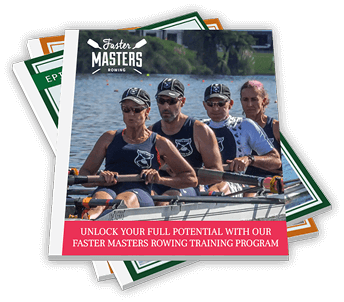Steering is hard to get perfect. Learn the key issues as we get ready for racing season. positioning the foot, roles in the boat, how to steer and how much.
Timestamps
01:00 Who steers - bow or stroke? Considerations - bow for head races, stroke for a straight, buoyed lane course.
Positioning the toe
02:15 How to set up the foot position. Make sure the steering wire is set so you get equal steering to both sides. Set the shoe to the mid-point. Get a shoe with a snug fit.
Looking around
04:00 Looking around - on a straight lane course, you don't look around. For head races - look round when you need to.
On a head race depends on the course and how many bends it has and how well you know the river/lake. Know the places where boat positioning changes. Have a mental map of the course, or print out a map to take in the boat. Know the 'next thing' coming up on the map.
Break the race down into segments.
Avoid over-steering
08:00 Steering with your toe without over-steering. Know your equipment as boats differ.
Check the wires attached to the T-bar over the rudder - set them wider or narrower depending on how much turning circle you need.
Check the rudder is straight before tightening the shoe nut clamping the wire. Are the wires attached to the t-bar wide or narrow to the midpoint? This can be adjusted.
11.30 You can make the boat turn without steering, especially in a sweep boat. Keep the boat level while steering - use lateral pressure into the pins.
Steer corners in the fewest possible strokes. Always look before you steer so you know where you are relative to the next bend.
Roles in the boat
14:00 Roles in the boat. Who does what?
It is possible to steer, call and stroke all at once. But can you cope?
In a four person boat you need a stroke, someone to do the calls and you need someone to steer. Who can read a race best in your crew? They must know what to do as the race develops and what trick to "pull out the bag" to respond to every situation. Three seat can act as guide for stroke - give them reminders - monitors how stroke is going.
What can go wrong?
17:45 What can go wrong?
Try to stick to the race plan but also respond to what's happening in the race and to our crew so you make adaptations on the fly during the race.
Know what you will do if
- you go off course
- a crew comes into your lane
- there's a crab
- you clip a buoy
- steer close to the buoys
- overlap with adjacent crew
19:30 If you drift to one side of the lane [look for the vanishing point on the buoy line]. Make your steering adjustment gradually to go back to the middle of the lane.
20:15 In head races what goes wrong is
- looking round frequently enough
- you forget what is coming up next on the course
- look towards the "object" which is your next steering marker.
Steer towards something solid (like a bridge pier rather than the arch).
How close you dare steer is based on your sense of risk, your crew's confidence and. your confidence in them. How does the crew respond to a quick, urgent steering requirement? What words do you use when you need pressure on one side?
23:30 Practice during your training sessions. Make notes about the course and the advice in this podcast.
Know your boat and know your crew. Be confident making decisions on the fly. There will be errors and you will mis-judge things sometimes.
Animosity within the crew kills ability.
Know how to get back on track. Practice them. It's fun refining your skills and seeing yourself get more confident.

